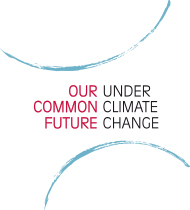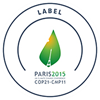Organizers : Francis Chateauraynaud (GSPR, Ecole des Hautes Etudes en Sciences Sociales, Paris), Markku Lehtonen (GSPR, �cole des Hautes �tudes en Sciences Sociales, Paris and SPRU, University of Sussex, United Kingdom), Ingmar Schumacher (IPAG Business School, France), Eric Strobl� (Ecole Polytechnique Paris, France)
Date : July 6th, from 9am to 6pm
Location : IPAG Business School, 184 Boulevard Saint-Germain, 75006 Paris
Expected number of participants : 50-100
Nature of participants : experts from the industry, academia and the government
Keywords : nuclear energy
Keynote speakers :
- Nicolas Boccard, Associate Professor of Economics, University of Girona, Spain
- Paul Dorfman, Honorary Senior Research Fellow, The Energy Institute, University College London
- Dominique Finon, Professor of Economics, Centre International de Recherche sur l'Environnement et le D�veloppement, CIRED, Paris
- Laurent Joudon, Director, Strategy Division, EDF, France
- Gordon MacKerron, Professor of Science and Technology policy, SPRU, University of Sussex, UK
- Yves Marignac, Director of Wise-Paris (World Information Service on Energy)
- Patrick Momal, former economist at the IRSN (French technical safety organisation in nuclear matters), and World Bank
- William Nuttall, Professor of Energy, The Open University, UK
- Thomas Reverdy, Associate Professor of Sociology, The Industrial Engineering & Management School at Grenoble Institute of Technology
Registration: Attendance is free but registration is required by the 29th of June 2015. Please follow the link to send an email with the subject line: "Nuclear workshop registration" in order to confirm.
- �



